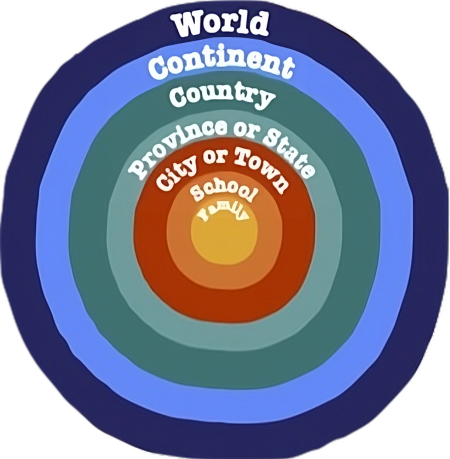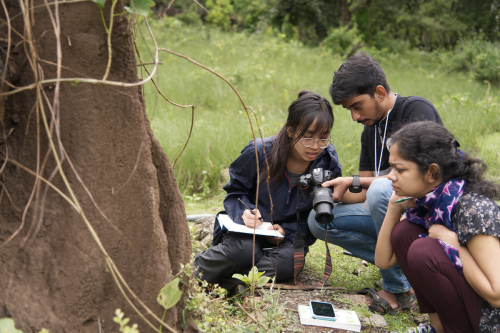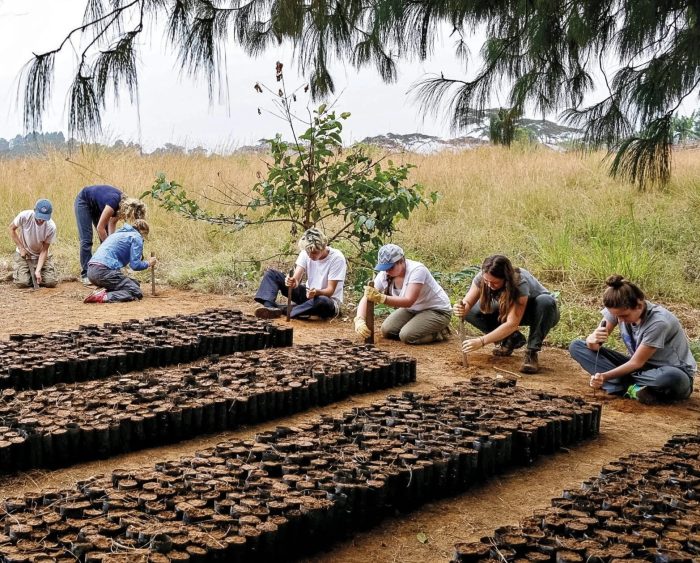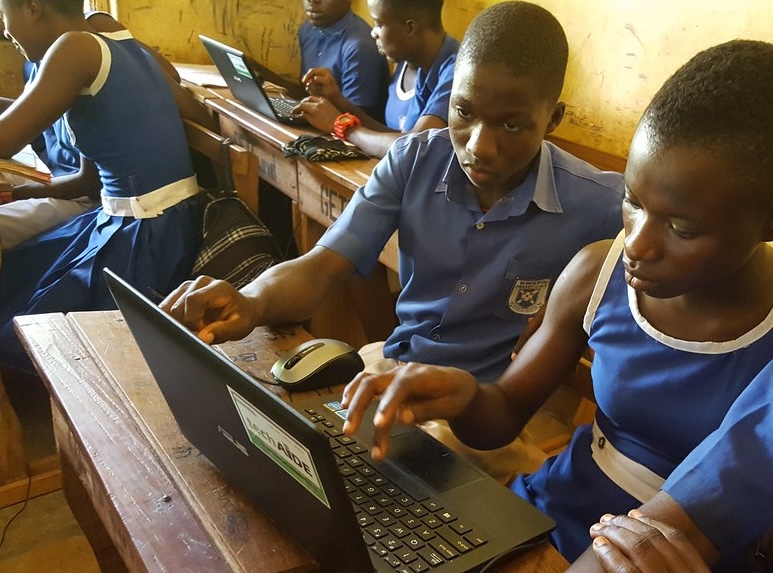
GCEI is an experiment in the community
We are experimenting with community on three levels. We are asking students what it means to be in community with themselves, that is to practice introspection and grow in awareness of their inner lives and the different aspects of the self (how they feel, what they think, how they behave). Then we are also asking students to be in community with others who are different, and practicing empathy and teamwork across cultures.
The question we ask students to reflect on is: How do we turn from seeing the other as an object, as a projection of our own stereotypes and misconceptions, to seeing the other as a subject who has a unique story all their own? And then finally, how do we experience community with our environment? Rather than seeing water, our rivers, our oceans, our lakes as things to be exploited and used for our personal gain, how do we begin to acknowledge our environment as a living subject with which we are inextricably bound?
This interdependency between the self, the other, and the world acknowledges that we are relational beings and how we feel, think and act is an ethical issue of justice.
The question we ask students to reflect on is: How do we turn from seeing the other as an object, as a projection of our own stereotypes and misconceptions, to seeing the other as a subject who has a unique story all their own? And then finally, how do we experience community with our environment? Rather than seeing water, our rivers, our oceans, our lakes as things to be exploited and used for our personal gain, how do we begin to acknowledge our environment as a living subject with which we are inextricably bound?
This interdependency between the self, the other, and the world acknowledges that we are relational beings and how we feel, think and act is an ethical issue of justice.

SCHOOL PROGRAMS

Our program is structured by cohorts of 8-10 schools from different places around the world. In each of these schools, there is a group of 4-15 students between 14 and 17 years old who are part of the program, and a School Advisor who guides and works with the students in the development of the project. Each year, a general theme is proposed that consists of one of the Areas of Service, within which each of the schools can focus on any type of problem (challenge) that is present in their community.
GCEI provides a Cohort Manager who guides the School Advisors in the application of the methodology, and supports them and the students with material, ideas, contacts, etc.
Likewise, each school has a partner school within the same cohort with whom they are invited to interact as much as possible through Zoom or apps such as WhatsApp so that the process is accompanied and shared between the two schools, in addition to building another type of bonds and sharing other experiences along the way.
Approximately, every 6 weeks, an International Meeting is held between the 8-10 schools that make up the cohort to share each part of the process according to the proposed sequence following a student-centered challenge-based approach. At some times of the year, according to specific situations or the availability of experts, we invite all students from the different cohorts of the moment to participate in forum-type meetings to analyze topics from various points of view, ask questions, among others.
At the end of the school year, an End-of-Year International Meeting is held to close the process, share what was achieved, learned, experienced, etc.
Likewise, each school has a partner school within the same cohort with whom they are invited to interact as much as possible through Zoom or apps such as WhatsApp so that the process is accompanied and shared between the two schools, in addition to building another type of bonds and sharing other experiences along the way.
Approximately, every 6 weeks, an International Meeting is held between the 8-10 schools that make up the cohort to share each part of the process according to the proposed sequence following a student-centered challenge-based approach. At some times of the year, according to specific situations or the availability of experts, we invite all students from the different cohorts of the moment to participate in forum-type meetings to analyze topics from various points of view, ask questions, among others.
At the end of the school year, an End-of-Year International Meeting is held to close the process, share what was achieved, learned, experienced, etc.

Pedagogical support

Occasionally, once schools and teachers start making part of our program, an interest is also awakened in applying the challenge-based approach proposed by GCEI in other subject areas that make part of the curriculum, or other spaces available at school. In these cases, and at the request of the school or individual teachers, we provide advice on the application of the project or challenge-based approach to other content or subjects.
One of our goals is to develop an online training for teachers on this topic, easy to follow and apply that can be used by teachers in different parts of the world, at no cost and with our monitoring, guidance and support in their process. We hope to make it possible soon.

Project sponsorships

Depending on the funds available to sponsor students’ projects, GCEI will seek to provide financial support to those projects that meet various criteria of viability, applicability, relevance, impact, among others. The percentage of financial support will be determined taking into account the availability of resources by the organization and the number of projects demanding support during each school year.

Technology connectivity support

In the case of schools located in places far from urban centers or in areas with connectivity problems, or schools that have precarious economic conditions, in which students have difficulties actively participating in our program because they do not have the necessary devices or connection, GCEI provides them with support to improve their access to technology, not only for the GCEI students to participate in our program, but also for their use in other areas of learning and communication.
